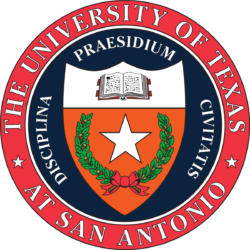Abstract
This paper draws from a four-year Lesson Study (LS) (Wood and Cajkler, 2017) project at a Hispanic-Serving Institution in Texas aimed at improving Engineering outcomes for Latinx undergraduates through a curricular and instructional redesign. Our approach focuses on the creation of third spaces through LS which allows negotiations of teaching ideologies to occur (Gutiérrez et al., 1999; Kramsch, 2009; Whitchurch, 2012). Engaging in sustained pedagogical change requires focusing on educators’ identities and understanding of sociocultural contexts. Adopting Affinity-identity theoretical underpinnings (Gee, 2000), this case study explores the emergence of hybrid teaching ideologies and pedagogical practices that result from LS as a model of professional development (PD) that brings Engineering and Education faculty together. We address the following research questions:
How are teaching ideologies and pedagogical practices negotiated by Engineering and Education faculty within LS collaborations?
How do LS faculty participants co-construct third spaces for teaching, where faculty negotiate multiple and often conflicting teaching ideologies and pedagogical practices?
Data are drawn from twenty-six transcriptions of weekly faculty LS meetings. These LS meetings focused on identifying learning challenges, planning a target lesson, implementing the lesson, and reflecting on classroom practices. Following critical discourse analysis (Gee, 2014), we draw on identity, politics, and task tools to understand how ideologies of teaching are presented and negotiated over time and the effect of those negotiations. Initial findings suggest LS enables conflicting affinity-identity Discourses to meet productively in a third space, where focused attention on new ways for teaching and learning for a diverse body of undergraduates can occur. Furthermore, this third space facilitates bi-directional shifts in teaching ideologies between Engineering and Education faculty. Finally, we describe the ways in which LS lessons were redesigned as well as additional shifts in overall orientation to teaching as a result of the negotiations taking place in the third space.
Keywords: Affinity-identity negotiations, third space, hybrid teaching ideologies, teacher identities, new pedagogical practices, Hispanic-Serving Institution
Presentation Slides
References
Gee, J. P. (2000). Identity as an analytic lens for research in education. Review of Research in Education, 25, 99–125.
Gee, J. P. (2014). An introduction to discourse analysis: Theory and method (4th edition). Routledge.
Gutiérrez, K. D., Baquedano‐López, P., & Tejeda, C. (1999). Rethinking diversity: Hybridity and hybrid language practices in the third space. Mind, Culture, and Activity, 6(4), 286–303. https://doi.org/10.1080/10749039909524733
Kramsch, C. (2009). Third culture and language education. In L. Wei & V. Cook (Eds.), Contemporary applied linguistics: Language teaching and learning (Vol. 1, pp. 233–254). Bloomsbury Academic. https://www.bloomsburycollections.com/book/contemporary-applied-linguistics-volume-1-language-teaching-and-learning
Whitchurch, C. (2012). Reconstructing identities in higher education (1st edition). Routledge.

